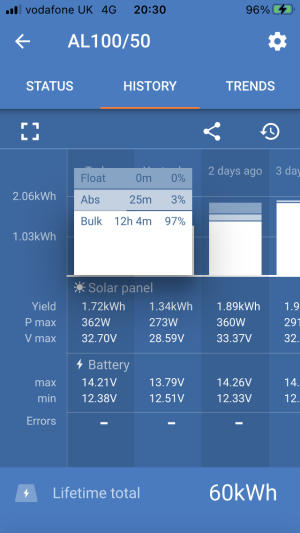Hamma
Member
It's a bit of a longshot - I've tried on Jeanneau boards with no specific success - Does anyone happen to know the specs for a factory fitted inverter in a 2005 Sun Odyssey?
Failing that - would anyone fancy speculating about the likely specs of a factory-fitted inverter in a French mass produced yacht from 20 years ago?
I know absolutely nothing about it - never paid it any attention because I was 'told' using it would damage my batteries and I have never needed to use it - but now I do.
If it's likely to be awful, and incapable of running anything useful like a coffee machine or a kettle, I suppose I will buy a modern decent one... after reading all the threads on here first of course.
Thanks!
Failing that - would anyone fancy speculating about the likely specs of a factory-fitted inverter in a French mass produced yacht from 20 years ago?
I know absolutely nothing about it - never paid it any attention because I was 'told' using it would damage my batteries and I have never needed to use it - but now I do.
If it's likely to be awful, and incapable of running anything useful like a coffee machine or a kettle, I suppose I will buy a modern decent one... after reading all the threads on here first of course.
Thanks!


